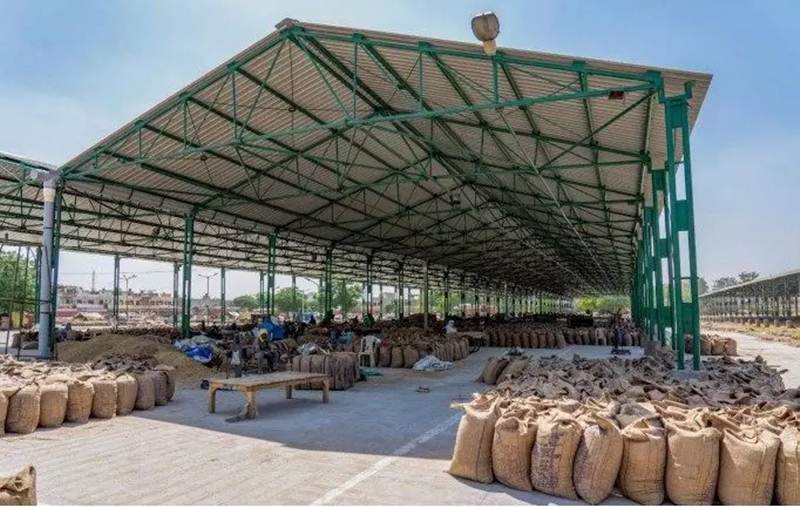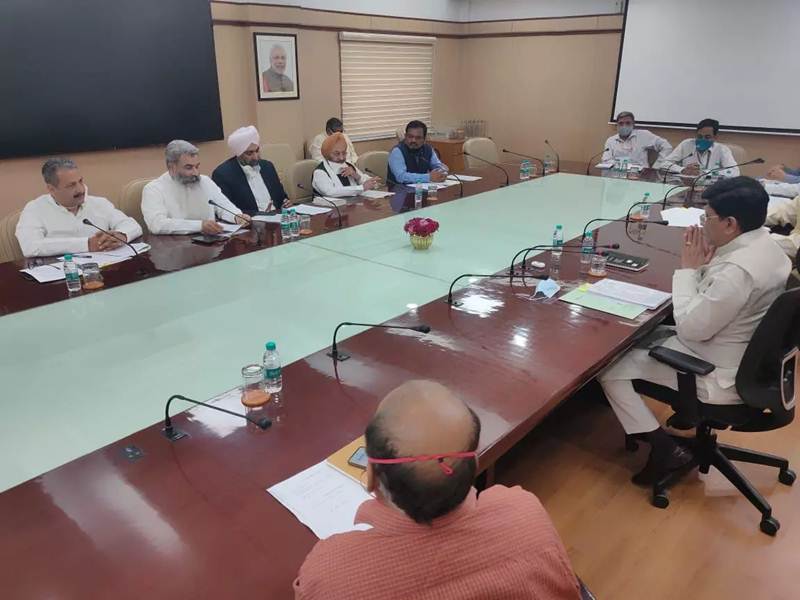Aadhatiyas boycott Day 1 of wheat procurement in Punjab over DBT scheme
This year, the central government decided to pay the MSP to farmers in Punjab directly into their accounts. The state government held rounds of talks with the Centre to retract the decision but to no avail. After the Punjab govt implemented the new scheme, aadhatis have boycotted the procurement as a protest.


A mandi in Punjab wears a deserted look amidst boycott by the aadhatiyas. Photo by arrangement
Protesting against the state government’s decision to implement direct bank transfer (DBT) of the minimum support price (MSP) to farmers, aadhatiyas (grain traders, middlemen) in Punjab boycotted the procurement of wheat harvest on the first day of the procurement.
Punjab Finance Minister Manpreet Singh Badal had stated on April 9 that the state government had no option but to enforce the DBT scheme from the current rabi (winter crop) season as the central government has refused to buy grains from the state if the DBT scheme was not implemented.
“The aadhatiyas in Punjab will not buy wheat from the farmers. We do not accept the state government’s decision. The association has stated its condition to the Chief Minister [Amarinder Singh] but we do not intend to harm the farmers,” Ravinder Singh Cheema, president, Arthiya Association Punjab told Gaon Connection.

“Langars will be organised inside the mandis and when the capacity of these mandis are full with farmers from the local areas, the protests will hit the roads with our tractors and trolleys,” he added.
As per the association’s data, there are a total of 32,000 commission agents in the state who procure wheat while 28,000 such middlemen buy paddy from the farmers. There are 1,850 large mandis (wholesale markets) in Punjab, out of which 152 are grain markets.
This year, the Food Corporation of India (FCI), planned to pay the MSP to the Punjab and Haryana farmers, directly into their accounts. This system has been followed in Uttar Pradesh, Odisha and other states, including Haryana where it is in the process of being implemented, but Punjab has been resisting it. The government has declared now that Punjab too shall fall in line with this form of direct payment.
The Centre has estimated the total wheat procurement in this season to be around 427.363 metric tonnes.
The farmers of Punjab are largely dependent on the commission agents, reiterated an official directly associated with the procurement system in Punjab. “The agents supply the much-needed money to the farmers all year around. They advance loans to the farmers and the relationship runs on mutual consent,” he explained on condition of anonymity.
The central government’s department of consumer affairs clarified in a statement on February 18: “The government has no intention to remove the commission agents in Punjab and Haryana and no direction has been issued to abolish them from the mandi system. Direct payment will not affect the agents’ commission or mandi fee. It only strengthens the system of payment in more transparent ways,” it stated.
The online transfer process was initiated as far back as 2012 by the Congress-led United Progressive Alliance (UPA) government, and many states adopted the system from 2015-16. However, Punjab and Haryana resisted it and, until now, in Punjab, the FCI and the state government pay the commission agents who then transfer the money to the farmers. Haryana has already started initiating the online transfer process.

